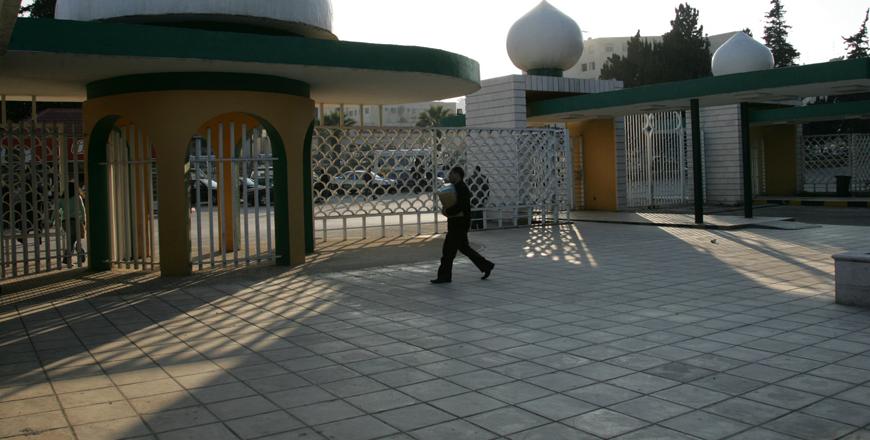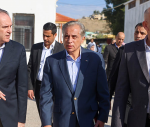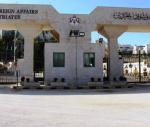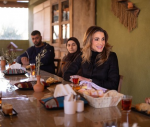You are here
UJ expanding role beyond academia, encouraging volunteerism — Tarawneh
By Khetam Malkawi - Jul 26,2015 - Last updated at Jul 26,2015

Over the past three years and through developing its programmes, the University of Jordan has managed to increase the rate of volunteerism among its students from 10 per cent to 50 per cent (Photo courtesy of ju.edu.jo)
AMMAN— The University of Jordan (UJ) is no longer a “purely” academic institution that limits its role to lecturing students without contributing to building their personalities and sense of duty towards their societies, according to its president.
Over the past three years and through developing its programmes, the Kingdom’s oldest university has managed to increase the rate of volunteerism among its students from 10 per cent to 50 per cent, UJ President Ekhleif Tarawneh said in an interview with The Jordan Times.
Tarawneh explained that the plan started with compulsory activities which counted as a requirement for graduation, such as planting a tree.
But after that, students themselves launched initiatives and started competing to come up with ideas and implement them, he added.
In this regard, the university has established a “students’ initiatives office” and announced awards that are presented through voting for the best initiatives.
Some of these initiatives were implemented during Ramadan, where students hosted orphans for iftar and provided them with clothing, Tarawneh said, noting that the initiatives also went beyond campus as students travelled to different governorates to reach out to underprivileged families in their homes.
On the academic level, the university has developed new subjects based on market needs, according to Tarawneh, to be taught in the 2015-2016 academic year.
Some of these specialties are hotel management, hospitality and a master’s degree in palliative care, which is required in most hospitals now.
The university is also developing an “entry test”, through which students will compete for postgraduate studies seats. The entry test requirement will be implemented as of the 2016-2017 academic year, Tarawneh said.
Financially, the university has developed a plan to narrow its budget deficit, considering the government’s “modest contribution” to university budgets in general.
Part of this plan is to increase investments.
As of 2016, the university will have 50 booths for investors, taking into consideration that they have to employ university students, the president said.
UJ will also invest in solar energy production, with plans to operate its facilities through solar energy to save the annual cost of electricity, which stands at JD8 million. The surplus will be sold to the national grid.
The university’s debts stand at JD57 million, according to Tarawneh, who noted that these are accumulated debts, and UJ has a plan to gradually pay them off.
The stem cells bank affiliated with UJ will be officially launched in September this year, and a centre for epidemiology has already been established. In addition, the university has increased the number of palm trees on its farm in the Jordan Valley and its produce will be ready for export within three years, Tarawneh said.
Related Articles
Her Majesty Queen Rania on Wednesday joined the University of Jordan (UJ) to celebrate Arbour Day and support the university’s efforts to replace trees that were damaged during the recent snowstorm.
AMMAN — The Lower House and the government on Sunday agreed to refer the new admission criteria for public universities to the Higher Educat
The University of Jordan (UJ) has launched a new master’s programme in sustainable development, the “first such specialisation ever taught in Jordan”.















